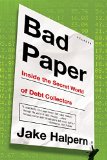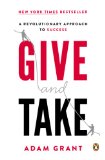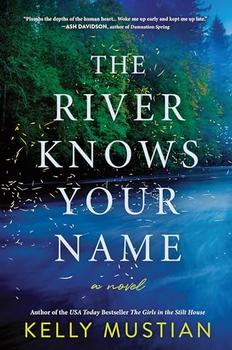Summary | Excerpt | Reading Guide | Reviews | Read-Alikes | Genres & Themes | Author Bio

A Rogue Economist Explores the Hidden Side of Everything
by Steven Levitt, Stephen J. DubnerWhich is more dangerous, a gun or a swimming pool? What do schoolteachers and sumo wrestlers have in common? Why do drug dealers still live with their moms? How much do parents really matter? What kind of impact did Roe v. Wade have on violent crime? Freakonomics will literally redefine the way we view the modern world.
Which is more dangerous, a gun or a swimming pool? What do
schoolteachers and sumo wrestlers have in common? Why do drug dealers still
live with their moms? How much do parents really matter? What kind of impact
did Roe v. Wade have on violent crime?
These may not sound like typical questions for an economist to ask. But
Steven D. Levitt is not a typical economist. He is a much heralded scholar
who studies the stuff and riddles of everyday life -- from cheating and
crime to sports and child rearing -- and whose conclusions regularly turn
the conventional wisdom on its head. He usually begins with a mountain of
data and a simple, unasked question. Some of these questions concern
life-and-death issues; others have an admittedly freakish quality. Thus the
new field of study contained in this book: freakonomics.
Through forceful storytelling and wry insight, Levitt and co-author Stephen
J. Dubner show that economics is, at root, the study of incentives -- how
people get what they want, or need, especially when other people want or
need the same thing. In Freakonomics, they set out to explore the
hidden side of ... well, everything. The inner workings of a crack gang. The
truth about real-estate agents. The myths of campaign finance. The telltale
marks of a cheating schoolteacher. The secrets of the Ku Klux Klan.
What unites all these stories is a belief that the modern world, despite a
surfeit of obfuscation, complication, and downright deceit, is not
impenetrable, is not unknowable, and -- if the right questions are asked --
is even more intriguing than we think. All it takes is a new way of looking.
Steven Levitt, through devilishly clever and clear-eyed thinking, shows how
to see through all the clutter.
Freakonomics establishes this unconventional premise: If morality
represents how we would like the world to work, then economics represents
how it actually does work. It is true that readers of this book will be
armed with enough riddles and stories to last a thousand cocktail parties.
But Freakonomics can provide more than that. It will literally
redefine the way we view the modern world.
 Malcolm Gladwell, author of Blink and The Tipping Point
Steven Levitt has the most interesting mind in America... Prepare to be dazzled
Malcolm Gladwell, author of Blink and The Tipping Point
Steven Levitt has the most interesting mind in America... Prepare to be dazzled
If you liked Freakonomics, try these:

by Jake Halpern
Published 2015
A vital exposé that is also a bravura feat of storytelling.

by Adam M. Grant
Published 2014
Give and Take highlights what effective networking, collaboration, influence, negotiation, and leadership skills have in common.



Choose an author as you would a friend
Click Here to find out who said this, as well as discovering other famous literary quotes!